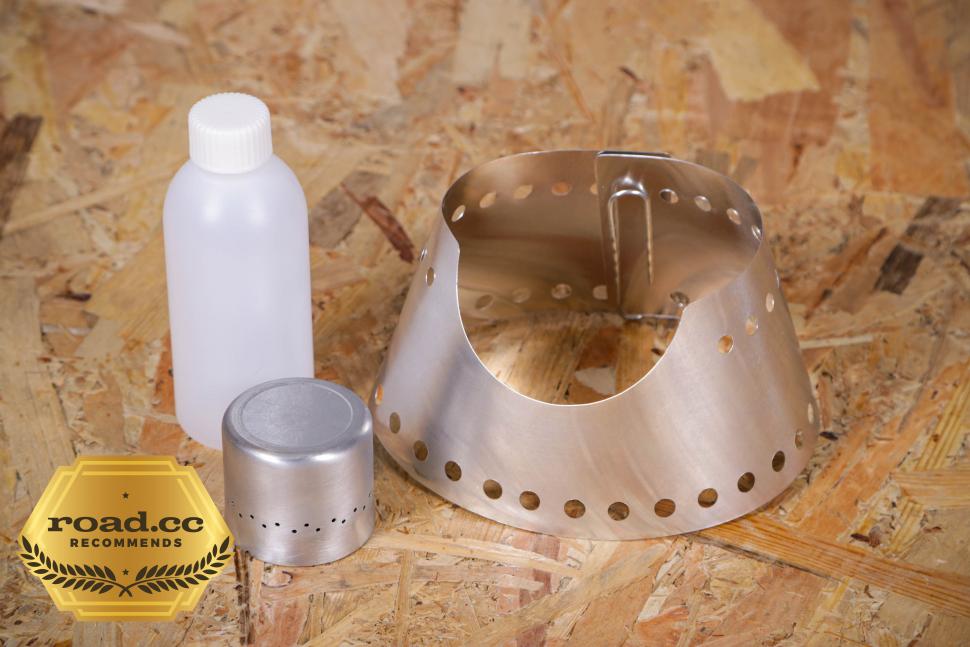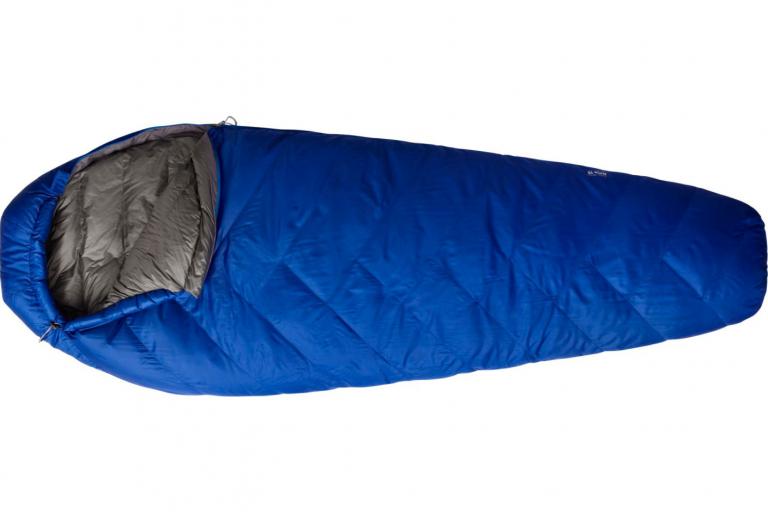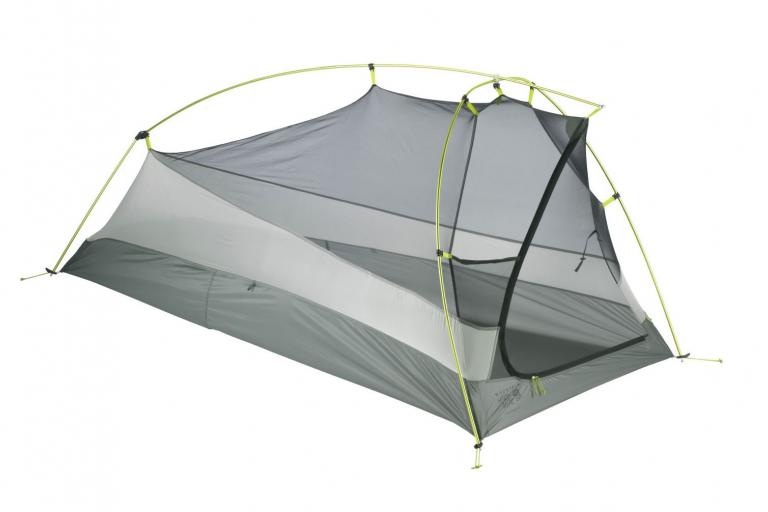- News
- Reviews
- Bikes
- Components
- Bar tape & grips
- Bottom brackets
- Brake & gear cables
- Brake & STI levers
- Brake pads & spares
- Brakes
- Cassettes & freewheels
- Chains
- Chainsets & chainrings
- Derailleurs - front
- Derailleurs - rear
- Forks
- Gear levers & shifters
- Groupsets
- Handlebars & extensions
- Headsets
- Hubs
- Inner tubes
- Pedals
- Quick releases & skewers
- Saddles
- Seatposts
- Stems
- Wheels
- Tyres
- Tubeless valves
- Accessories
- Accessories - misc
- Computer mounts
- Bags
- Bar ends
- Bike bags & cases
- Bottle cages
- Bottles
- Cameras
- Car racks
- Child seats
- Computers
- Glasses
- GPS units
- Helmets
- Lights - front
- Lights - rear
- Lights - sets
- Locks
- Mirrors
- Mudguards
- Racks
- Pumps & CO2 inflators
- Puncture kits
- Reflectives
- Smart watches
- Stands and racks
- Trailers
- Clothing
- Health, fitness and nutrition
- Tools and workshop
- Miscellaneous
- Buyers Guides
- Features
- Forum
- Recommends
- Podcast
 2021 Bear Bones Ultralight 22g Meths Stove
2021 Bear Bones Ultralight 22g Meths Stove£18.00
VERDICT:
Great little spirit stove for heating water, compact and superlight, made in the UK
Very light
Compact
Eco-friendly
Optional windshield
Cold-weather use needs practice
Weight:
22g
Contact:

This product has been selected to feature in road.cc recommends. That means it's not just scored well, but we think it stands out as special. Go to road.cc recommends
At road.cc every product is thoroughly tested for as long as it takes to get a proper insight into how well it works. Our reviewers are experienced cyclists that we trust to be objective. While we strive to ensure that opinions expressed are backed up by facts, reviews are by their nature an informed opinion, not a definitive verdict. We don't intentionally try to break anything (except locks) but we do try to look for weak points in any design. The overall score is not just an average of the other scores: it reflects both a product's function and value – with value determined by how a product compares with items of similar spec, quality, and price.
What the road.cc scores meanGood scores are more common than bad, because fortunately good products are more common than bad.
- Exceptional
- Excellent
- Very Good
- Good
- Quite good
- Average
- Not so good
- Poor
- Bad
- Appalling
The Bear Bones Bikepacking Ultralight 22g Meths Stove is one of the lightest, most compact ways to heat water on a bike ride. Comprising a stove, windshield and fuel bottle, it's ready to go – just add meths. You do need to practise, mind, and meths may not be the cooker for you.
Cooking with meths (or any liquid spirit) is as old as the fuel itself. While compressed gas cookers are undoubtedly more immediate, controllable and easy to use, there are moving parts to break, extra weight, waste, cost and eco considerations. Meths cookers on the other hand have no moving parts, relying on smart design to heat/pressurise the liquid fuel and emit jets of flame.
There are a myriad of spirit cookers out there, ranging between ones built for free from empty soft-drinks cans, through to artisanal brass or titanium models costing over a hundred quid.
Fundamentally they all rely on the same principle: heating the liquid fuel until it emits a steady flow of pressurised vapour through small holes, which then ignite and form jets to transfer energy to the cooking vessel.
Many people will be familiar with the Swedish Trangia meths stove, which is considerably heavier than the Bear Bones model at 110g. The principle is basically the same: add up to 30ml of fuel, light, wait a few minutes for it to heat up and 'bloom', then put your pot on and wait.
The Bear Bones model relies on the heating vessel being placed on the top of the cooker, forming a seal of sorts with a tiny cutout to admit oxygen to the inside. Looking down into the cooker there's an internal chamber around the base, which the fuel flows into. When you light the cooker it's initially the centre section that burns, then when the fuel in the chamber is hot enough the jets around the side ignite – the 'bloom'. Then you bung your cup or pot on top – so it's essential you've picked a flat surface.
At 50mm wide the cooker easily supports a 450ml mug at 90mm diameter, with a maximum recommendation of 150mm-wide vessels.
The meths stove kit has an optional 22g aluminium foil conical, rollable windshield with a giant paper clip to secure it once formed into a cone, which is highly recommended to improve efficiency. That's £9 and is designed specifically to surround a mug or pot sat on the stove, with a cutout section for the handle. So the total weight of the kit is 44g, plus the fuel bottle of course.
> How to go bikepacking: A beginner’s guide to getting started
A 30ml helping of fuel burns for about 10 minutes, so filling the provided 100ml bottle to the brim (155g) gives you half an hour's water heating for 199g. I measured about six minutes to heat 450ml of ambient-temperature water (about 15°C) to a rolling boil, and about three minutes to 'hot enough for coffee/tea' temperature. So that 200g kit is good for about 10 brew-ups.
If you're heating water to reconstitute a dehydrated meal in a bag, you'll really want to get to a full boil, pour in, then let it sit for 10 minutes to soak in, so let's call it 10 cuppas or five meals.
Technically, you could 'cook' over the stove – but with about 10 minutes' burn time in total and a narrow footprint it's best left to heating water. Being spirit there's no 'simmer' option here – it's either going or not. And if you need to add more fuel you need to ensure it's extinguished and cool enough to pour more in, then you need to relight and wait for the bloom.
In cold weather – like, close to freezing – the fuel can take a few goes to catch, so have a decent lighter or long matches. You can help the process by warming the fuel bottle in your pocket beforehand.
> An introduction to bikepacking – three ways to try it and what to pack
Comparing with a lightweight gas setup – in my case the 45g, £28 Alpkit Kraku ultralight titanium burner – plus canister, you're looking at 300g including a pot stabiliser (needed for the taller setup), plus windshield. And you're using gas, releasing CO2, and the metal canisters need mining and manufacturing.
Whether that matters to you or not on your bikepacking journey is your call. Going the spirit burner route you can eschew meths for smokeless bio-ethanol spirit at about £5 per litre in recyclable bottles from most camping shops, making your ride that bit greener and less wasteful. You also know exactly how much fuel you have left, unlike gas where you have to shake, guess and hope, and likely end up taking two canisters on a longer trip to be sure.
If you finish up with fuel left it's easy enough to invert a pot or mug over the cooker to extinguish the flame, then after waiting for the fuel to cool, pour it back into the bottle. You should never try to blow out a liquid fuel cooker, with the risk of splashing burning fuel everywhere.
Value and conclusion
As mentioned there's a huge range of spirit stoves around – Bear Bones does an even smaller, much lighter 8g stove in the same design, also for £18, taking 12ml of fuel and specifically just for heating a single mugful of water. Alpkit's Bruler cooking kit is £29.99 for a larger 150g setup excluding fuel bottle. At the extreme end of the spectrum, stoves like the 36g Evernew Titanium will set you back £66.99 for the stove alone – then you need a pot support and windshield too. It does hold twice the fuel, mind.
Overall, for £18 the Bear Bones Meths Stove is a great bit of kit if all you need to do is heat water. The component parts split up easily amongst different bags for ultra-light, compact setups if space is at a premium. You can ditch the windshield if you know you'll use it in sheltered conditions, and if it's just a day trip or overnight you might only half-fill the fuel bottle. And it's made right here in the UK, deep in the Cambrian mountains of Wales. Cool. No, hot.
Verdict
Great little spirit stove for heating water, compact and superlight, made in the UK
road.cc test report
Make and model: Bear Bones Ultralight 22g Meths Stove
Size tested: Ideal for use with 80mm – 150mm pots
Tell us what the product is for and who it's aimed at. What do the manufacturers say about it? How does that compare to your own feelings about it?
It's for people wanting to heat water, in a very small form factor.
Bear Bones Bikepacking says:
Ideal for use with 80mm – 150mm pots so great for when you want more than just a cup of tea.
DESCRIPTION
The 22g stove is still only about half the weight of most lightweight meths stoves. Its larger fuel capacity makes it ideal for those times when you need that bit more water. The bigger diameter makes it stable enough to handle pots from 80mm up to 150mm. Much development time has been given to the engineering of the jet configuration, the dual jet pattern helps maximise efficiency and decrease potential 'hot spots' on the pot base.
Tell us some more about the technical aspects of the product?
Bear Bones lists:
The 22g is supplied with a 100ml fuel bottle and instructions.
Specifications
Weight: 22g.
Dimensions: 50mm wide x 43mm high.
Maximum fuel capacity: 30ml.
Average total burn time from blooming: 10 mins on 30ml fuel.
Intended pot diameter: 80mm – 150mm.
Rate the product for quality of construction:
10/10
Really well made, in Wales.
Rate the product for performance:
8/10
It does take a few minutes to heat up, but once going it's good.
Rate the product for durability:
10/10
No moving parts – it's bombproof.
Rate the product for weight (if applicable)
10/10
Any lighter and it would float away.
Rate the product for value:
8/10
For £18 it's a great deal. You can easily spend four times the price.
Tell us how the product performed overall when used for its designed purpose
Got my water hot enough, fast enough, with fuel to spare. Easy to set up and pack away in nooks and crannies of bags.
Tell us what you particularly liked about the product
The tiny size and weight, but still got water hot fast enough.
Tell us what you particularly disliked about the product
Nothing.
How does the price compare to that of similar products in the market, including ones recently tested on road.cc?
At £27 including windshield, it's a great deal. You can spend four times that for basically the same thing but in titanium.
Did you enjoy using the product? Yes
Would you consider buying the product? Yes
Would you recommend the product to a friend? Yes
Use this box to explain your overall score
The only thing I can mark this down on is inherent to this sort of stove – no simmering, and a limited fuel capacity restricting you to about 10 minutes' cooking. It's excellent.
About the tester
Age: 47
I usually ride: Sonder Camino Gravelaxe My best bike is: Nah bro that's it
I've been riding for: Over 20 years I ride: A few times a week I would class myself as: Expert
I regularly do the following types of riding: cyclo cross, general fitness riding, mtb, G-R-A-V-E-L
Living in the Highlands, Mike is constantly finding innovative and usually cold/wet ways to accelerate the degradation of cycling kit. At his happiest in a warm workshop holding an anodised tool of high repute, Mike's been taking bikes apart and (mostly) putting them back together for forty years. With a day job in global IT (he's not completely sure what that means either) and having run a boutique cycle service business on the side for a decade, bikes are his escape into the practical and life-changing for his customers.
Latest Comments
- Bigtwin 3 sec ago
Taxis doing what they want where they want when they want: unusual...
- HarrogateSpa 18 min 6 sec ago
Skates wants to spend active travel money on dropped kerbs, seating and better bus shelters....
- Bigtwin 19 min 3 sec ago
It's a fashion. https://guildford-dragon.com/shalford-driver-who-smashed-shalford-war-me...
- Bigtwin 21 min 17 sec ago
I used to frequent CW. On topic, when I first started riding on the roads, there were some 30 million fewer people in the UK. It was very much a...
- Rendel Harris 26 min 53 sec ago
Care to back that statement up? As far as I'm aware this is the only incident he has had that he or anyone else has described as life threatening,...
- MTL Biker 39 min 53 sec ago
Robin Phans .....
- mdavidford 45 min 43 sec ago
It's a swan uprising. (As opposed to a swan upping, which is a different thing altogether.)
- Rendel Harris 48 min 1 sec ago
"Complainer" in Scottish law is simply the legal term for the person who alleges that a criminal offence has been committed against them, the...
- Rendel Harris 2 hours 20 min ago
Well it would be irresponsible enough if there were only cars and buses, if there are going to be "cars, buses and traffic" that's just suicidal...
- UnholyGoatFeet 2 hours 29 min ago
It's always the same... People who don't even ride bikes, are the one's crying about change too there precious roads. Let's not bother asking...




Add new comment
7 comments
Great stove for people/ trips that don't actually necessitate a stove. If you do need a stove, stop messing about: this is what you need. I think it's even recommended by DofE. They have to cook outside the tent, you don't.
https://www.amazon.co.uk/Vango-Folding-Camping-Stove-Silver/dp/B0039VXC4I/ref=sr_1_2?adgrpid=568308628&dchild=1&hvadid=80126942558319&hvbmt=be&hvdev=c&hvlocphy=131609&hvnetw=o&hvqmt=e&hvtargid=kwd-9293183536%3Aloc-188&keywords=vango+folding+stove&qid=1629133056&sr=8-2
Always cook under the flysheet.
I got one of those from Go Outdoors. Great for brewing up coffee, and perfectly stable on the ground because it sits squat on its legs instead of trying to balance atop a gas canister.
Then I saw it on Amazon, which led me to all the other versions (presumably out of the same factory minus the Vango/DofE mark-up) with piezo-ignition. Buyer's remorse, c'est la vie!
https://www.amazon.co.uk/gp/aw/d/B07TKH4YYL/ref=sspa_mw_detail_2?
You are quite right: the important bit is that the stove and pan do not sit, ready to fall and send the tent up in flames, on top of the gas cylinder. I may be a bit Luddite, refusing the piezo on the assumption that it would soon stop working and sticking to a lighter.
The problem with this design is you have to balance your pot on the small stove. you also have to wait for the bloom which wastes time and fuel.
sbp stoves are better designed with windshield/pot stand and better value for money, also made in the UK:
https://speedsterstoves.co.uk/combined-windscreens/pot-rests.html
Although double walled and open cylinder stoves are quite different, it's wrong and somewhat biased to claim that one is a better design than the other. Different yes but neither is inherently better and both have their pros and cons. As for better value, that again is subjective - after all, one is simply a tin with a wick, the type of thing someone with no skills or experience could fashion in a few minutes at home and the other one isn't.
Whilst I get meths vs gas is like disc brakes vs rim brakes, I'm not sure the eco-credentials as mentioned above stack up.
And you're using gas, releasing CO2, and the metal canisters need mining and manufacturing."
Burning meths releases CO2 too.
Gas is 40% more energy dense than meths (i.e. you use less and get a faster boil).
I dont have enough practical experience of the pro's and con's but aside from the gas bottle my WAG on eco-credentials is that its a draw, and pretty minimal in the grand scheme of things either way - even if we were in marginal gains territory.... Your bike is probably a much much bigger eco-deficit than your stove for example.
alcohol is completely renewable made from sugar. Gas is a fossil fuel - just the energy taken to get it out of the ground puts it way behind - have you seen the documentaries about the horrors of fracking etc? There is no competition in terms of eco. Alcohol is also much more reliable - liquid fuels are often chosen for expedition use for this reason - there is nothing to go wrong.